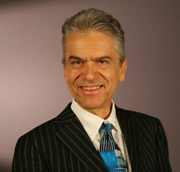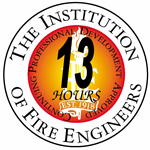

| About | |
| Programme | |
Venue/Accommodation |
|
| Registration | |
| Download Flyer | |
| Short
Course Joining Instructions (pdf) |
|
| Interflam 2013 | |
|
|
Discounted
Registration fee for Interflam Delegates |
|
Ignition Handbook |
|
 |
|
The
Ignition handbook can be purchased from our >> on-line bookshop |
|
|
Principles
of Electrical Fires and Explosions 2 Day Short Course Royal Holloway College, University of London, Nr Windsor, UK |
|
Conferences |
27th
- 28th June 2013 |
THE COURSE AIMS AND OBJECTIVES Most other courses on electrical fires available to fire investigators (a) start at a very basic level and run out of time before more advanced topics can be covered; and (b) focus primarily on examples of electrical fires, and do not systematically develop the principles that underlie all electrical fires. It is the purpose of the present course to take up where such courses leave off and it is assumed that attendees already have some knowledge of the more practical aspects of investigating fires in electrical devices or appliances. The first half of the course is devoted to developing a good understanding of the principles that underlie all electrical fires. The remainder focuses on a variety of devices and appliances that can undergo an electrical fire. This is illustrated by color photos of failed devices, and the participants will be given information in the last portion of the course on how these practical failures can be understood in terms of the basic principles of electrical fires. The course has been expanded and enhanced to include details of electrical explosions, which are also a significant hazard. Also included are much new material on overheating connections, based on recent research in this area. The course includes extensive, detailed handouts but does not duplicate the material provided in the author's Ignition Handbook (Fire Science Publishers, 2003). Thus it is recommended that attendees have, or procure a copy of the handbook. The course is intensive and in-depth and includes two full days of presentations. The principles involved are presented in this course in a way to be suitable to both engineers and non-engineers. However, a basic understanding of Ohm's Law and the principles of electricity is expected of all attendees. |
||
ORGANISERS Further details from the Conference Organisers: Interscience Communications Ltd, West Yard House, Guildford Grove, London SE10 8JT, UK Tel +44 (0) 208 692 5050; +44 (0)208 692 5155, Email: office@intersciencecomms.co.uk |
 |
|
Dr.
Vytenis (Vyto) Babrauskas
About the Tutor: Dr Babrauskas was the first person to ever receive a Ph.D. degree in Fire Protection Engineering. He headed the fire test method development programs at NIST for 16 years before becoming a consultant. Vyto has taught graduate-level engineering courses at the University of British Columbia and at Worcester Polytechnic Institute, has given hundreds of lectures and presentations and is the author of some 300 papers on fire safety. He is the Author of the authoritative treatises "Ignition Handbook" and "Heat Release in Fires", and serves in an editorial capacity for several fire safety journals. In recent years, he has been regularly teaching classes to fire investigators on fire science principles. Further details from http://www.doctorfire.com
|
| Conference Proceedings/Shop | |

